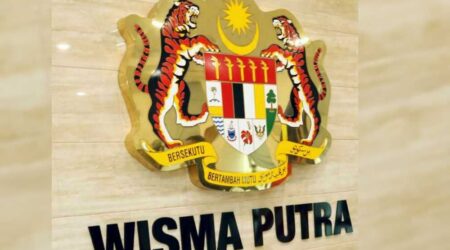NCDs cost Malaysia RM64bil in economic losses in 2021, says Dzulkefly
KUALA LUMPUR: Non-communicable diseases (NCD) caused RM64bil in economic losses for the country in 2021 with many sufferers either unable to work or worse, says Datuk Seri Dr Dzulkefly Ahmad.
The Health Minister said this massive hit to the economy was based solely on only the four most common NCDs – cardiovascular diseases, cancer, diabetes and chronic respiratory illnesses.
This included direct economic losses of RM12.4bil to provide health care for NCD patients and indirect costs amounted to a massive RM51.8bil.
“The indirect costs are mostly related to absenteeism and presenteeism which arise as a result of NCD complications such as fatigue, blurred vision and increased risk of infection.
“To this, it is estimated that the country’s economy lost RM1.8bil to absenteesim and RM30bil to presenteeism,” he said in a speech at the launch of the Prevention and Control of Non-communicable Diseases in Malaysia: The Case for Investment report in Parliament on Thursday (Nov 14).
Absenteeism due to NCD refers to when a working age adult is unable to work or contribute to the economy due to NCD complications.
Presenteeism due to NCD refers to a working age adult is able to work but at a significantly lower level of productivity or efficiency due to an NCD.
The report also outlined key interventions that give the highest return on investment (ROI) in terms of national economic benefit in 15 years for every RM1 invested in health interventions by the government for the public in 2021.
“These economic benefits refer to economic contributions that the public can produce from being able to work productively without being hindered by NCD,” he added.
This includes a ROI of RM60 for salt reduction programmes, RM6.64 for physcial activity programmes and RM5.93 for tobacco control programmes.
Dzulkefly noted some examples of such interventions the ministry had taken including the sugar sweetened beverage tax which will rise from RM0.50 to RM0.90 per litre in January next year.
Another example, he said, was the various health programmes launched under Agenda Nasional Malaysia Sihat (ANMS) which has provided marginal improvements in public health based on statistics from annual National Health & Morbidity Survey (NHMS) from 2019 to 2023.
He added that his ministry was also looking to launch a new initiative called the “Lung Health Initiative Malaysia 2025 – 2030” to combat respiratory NCDs that are caused by smoking.
“A joint effort by all stakeholders through the whole of nation and whole of society will be led by the government.
“This will involve the government, private sectors, non-government organisations, professional bodies and the public,” he added.













Leave a Reply